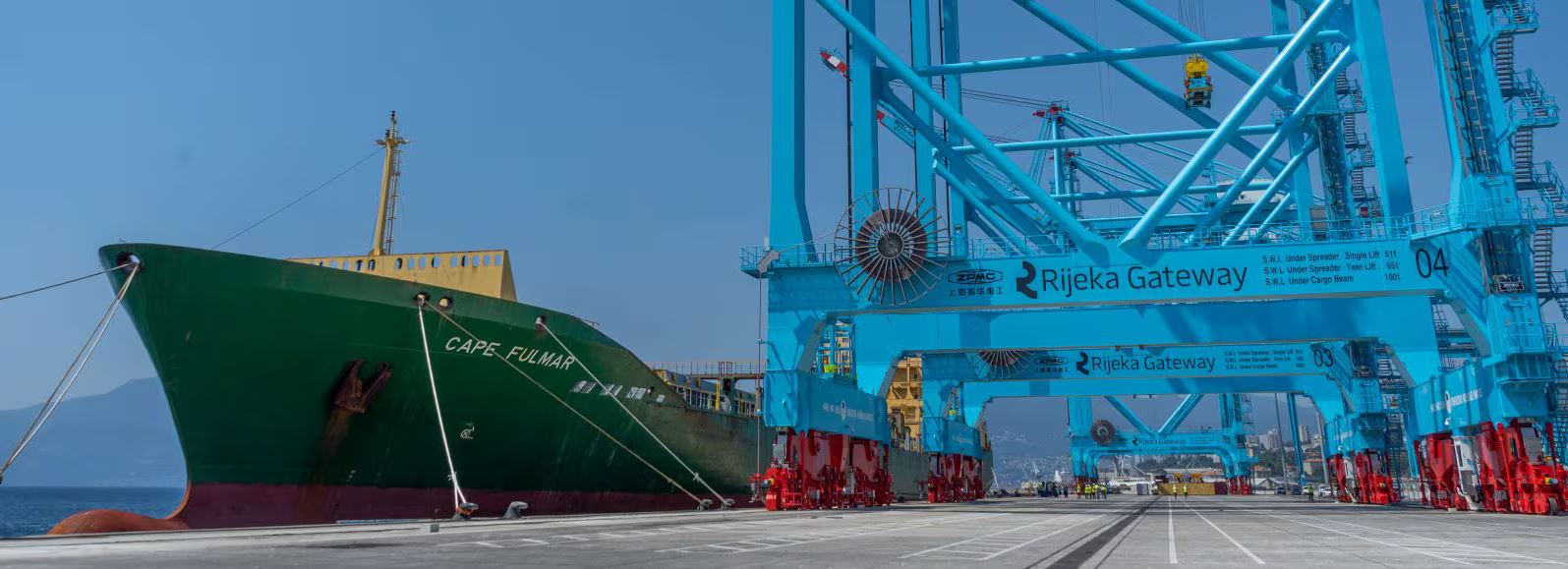 Rijeka Gateway has entered its final testing phase with the arrival of its first container vessel, the M/V Cape Fulmar, and its first test train operated by ENNA Logic, according to APM Terminals's release.
Rijeka Gateway has entered its final testing phase with the arrival of its first container vessel, the M/V Cape Fulmar, and its first test train operated by ENNA Logic, according to APM Terminals's release.
The vessel will remain at the terminal for four weeks to facilitate training and operational process testing under real conditions.
The M/V Cape Fulmar arrived from Port Said, Egypt. It is 170 meters long, 25 meters wide, and has a capacity of approximately 1,440 TEU.
Testing will include planning, loading and unloading various container types, securing cargo, and coordinating movements using terminal vehicles.
The first test train, measuring 500 meters and divided into two compositions across two tracks, delivered empty containers for RMG crane testing.
Export cargo by truck and train is expected in early September, with the first commercial vessel scheduled to arrive on September 12, 2025.
Initially, vessel calls will take place every Friday, with frequency increasing later.
Rijeka Gateway currently employs over 220 people. In 2025, more than 45,000 hours have been dedicated to recruitment and training.
“Two years after construction began, our terminal is now fully equipped and ready for trial operations. The arrival of the test vessel and train marks the beginning of a critical, yet exciting phase, and our talented and diligent team is fully engaged in putting systems and processes into practice,” said Peter Corfitsen, CEO of Rijeka Gateway.
Rijeka Gateway is a joint venture between APM Terminals and ENNA Group. Phase One capacity is 650,000 TEU, and the terminal can handle vessels up to 18,000 TEU.
APM Terminals B.V. is a global port and terminal operator headquartered in The Hague, Netherlands, and part of A.P. Møller – Mærsk A/S. The company operates a network of port facilities on multiple continents, providing cargo handling and related services.
Energia Naturalis d.o.o. (ENNA Group) is a privately held Croatian holding company with interests in energy, logistics, and infrastructure sectors. Its portfolio includes companies involved in rail freight, energy distribution, and terminal operations.



